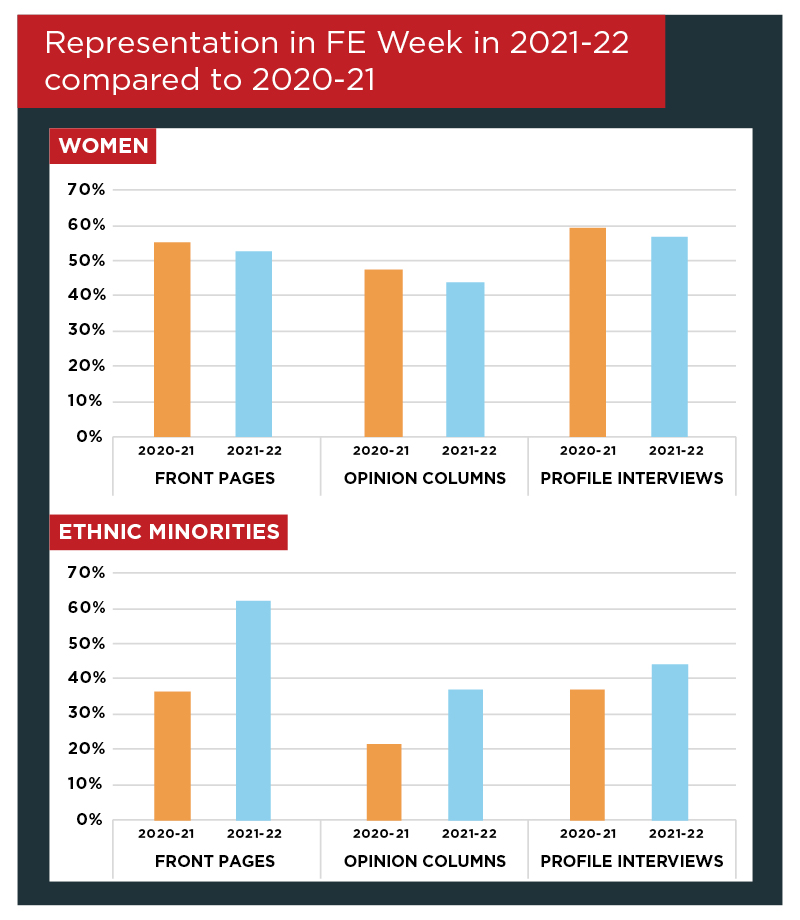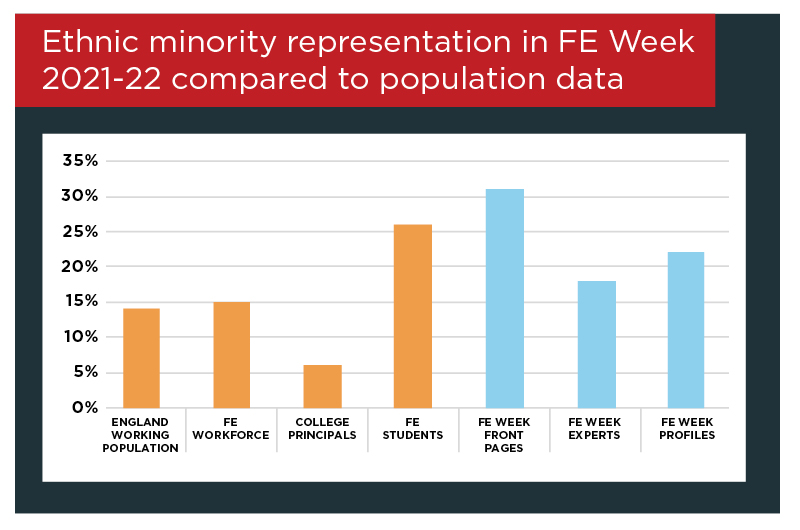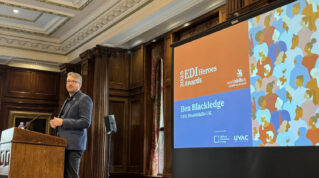Twelve months after our first look at diversity and visibility within our newspaper pages, FE Week editor Shane Chowen looks at how we’re doing.
When we published our first diversity audit last year, we said that as the sector’s only dedicated newspaper, we take seriously our responsibility to reflect and represent the diversity of the FE and skills community. That commitment is as true now as it was then and we know we have more to do.

Figures for our 2021/22 publication cycle show that we have made good progress in the visibility of people from ethnic minority backgrounds. We had a more diverse mix of opinion writers last year with 18 per cent coming from an ethnic minority, up four percentage points from the year before.
On our front pages, 31 per cent of the people pictured throughout the year were from ethnic minorities, almost double the proportion from the previous year.
Before the pandemic struck, diversity and inclusion was the sector’s top priority. It’s vital that leaders revisit the commitments they made and bring it back to the top of the agenda.
Because even though we’ve made some progress in our pages, it remains the case that people from ethnic minorities are still woefully underrepresented at the top of the sector. We know that 26 per cent of students and 16 per cent of the FE workforce are from ethnic minorities, yet the latest estimates from the Association of Colleges is that only nine per cent of college principals and chief executives are.
When we introduced The Staffroom last year – a weekly column reserved for writers from the frontline of the sector – we were able to extend our reach beyond the top tier of provider leaders and therefore reach a more diverse pool of writers, perspectives and, hopefully, readers.
Through our special inclusion supplement – FE: For Everyone, published at the AoC Conference in November – we were able to provide a platform for the disruptors and up and-coming leaders from a range of backgrounds in our sector who are not just hungry for change, they are delivering it.
Our other focus has been on making sure that the contribution of women in FE is fairly reflected. Women make up 55 per cent of the student population, 61 per cent of the college workforce and, according to the AoC, now 49 per cent of college principals and chief executives.
However, those numbers have not been so high in the upper echelons of government departments, sector bodies and thinktanks we draw from.
While our audit shows that we have increased the proportion of ethnic minorities in our profile interviews and opinion column writers over 2021/22, those figures dropped from 59 to 57 per cent and 47 to 44 per cent respectively when counting women over the year in FE Week.

I recognise that we have more to do on who we commission and write about in our newspaper. We will listen to women and others, such as people with disabilities, who we know are underrepresented in our pages.
But over the last year we’ve made sure we hold the sector, as well as ourselves, to account on the equality agenda.
In addition to our supplement last November, our reporters have covered the achingly slow progress towards closing the gender pay gap in colleges, as well as the responses of ethnic minority leaders to the government’s “bizarre” strategy to increase diversity in apprenticeships. We challenged the DfE’s latest round of appointments for national leaders of further education (NLFEs) for continuing to not promote any non-white principals.
It remains farcical that non-binary students are still forced to choose “male” or “female” in order to get funding for their course – unlike most other places now in the public sector – and that the quality of data on the FE workforce and leaders in parts of the sector is so scarce.
We should not just focus on ethnicity and binary gender. We do not currently track who among our roster of writers identify as LGBTQ+, nor their socio-economic backgrounds. I’d like to hear from our readers on how to make this happen.
So, with your support, FE Week will continue to do its bit in bringing the voices of those you need to hear from, empowering the leaders of tomorrow to disrupt the system, and to hold to account those with the power to change things.

















Your thoughts